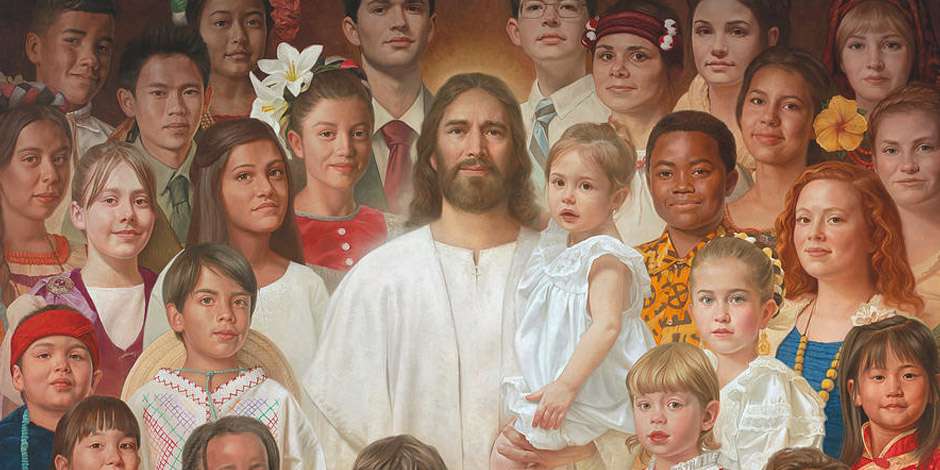To accompany your Come Follow Me study for February 24 to March 9. (Four years ago these two sections were studied during the same week. Rather than redo these “Points to Ponder,” we have left the material together and indicated that they will cover a two-week period this time.)
In addition to reading D&C 18-19 and the related Come Follow Me material, you will want to read:
- “The Contributions of Martin Harris,” in Revelations in Context, at The Contributions of Martin Harris (churchofjesuschrist.org)
- Saints 1:76-81 at 08 The Rise of the Church of Christ (churchofjesuschrist.org)
- Chapter 6: Doctrine and Covenants 7; 13; 18 (churchofjesuschrist.org)
- Chapter 8: Doctrine and Covenants 19 (churchofjesuschrist.org)
- Joseph Smith’s Revelations, Doctrine and Covenants 18 (churchofjesuschrist.org)
- Joseph Smith’s Revelations, Doctrine and Covenants 19 (churchofjesuschrist.org)
You may also enjoy the following videos:
If you would like a Kahoot game that you can share with your family or class, click the following link: https://create.kahoot.it/share/doctrine-and-covenants-18-19/a14e890a-8ae5-478c-8227-be489d03944c. To use it with a group, after clicking on this link, you will need to log into Kahoot, creating a free account if you have not done so previously, then click on the blue “Host Live” button or the gray “Assign” button, depending on how you wish to use the Kahoot. Some of the Kahoot questions may presuppose that the player has read through the suggested answers to the following Points to Ponder and at least has browsed the Institute student manual as well.
Points to Ponder in Doctrine and Covenants 18-19
1. D&C 18:10-16 is usually thought of as being directed to missionaries. List at least two other applications you can think of for the same passage.

2. How do you harmonize 3 Nephi 11:29, that says “he that hath the spirit of contention is not of me,” with the message of D&C 18:20 that we should contend against a certain church?

3. What does the Lord mean in 18:35 that only by his power can we read the words of the D&C to each other? Can’t any literate person at least read the words, even if he doesn’t choose to follow them?
4. What reasons can you think of why the Lord may have designated Oliver Cowdery and David Whitmer to select the Twelve Apostles rather than have Joseph Smith do it himself as President of the Church?
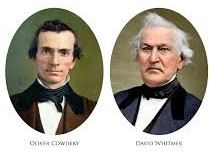
5. Do the Lord’s explanations in D&C 19 make “eternal damnation” a more or less fearful prospect? Is He saying in D&C 19 that he has allowed his children through the centuries to misunderstand the meaning of “eternal damnation” and “endless torment” because they were better off misunderstanding? Explain.
6. Is God more like a coach or a referee? What difference does it make?

7. Why do Latter-day Saints believe that the Savior’s suffering on our behalf was at least as intense in Gethsemane as on Calvary?
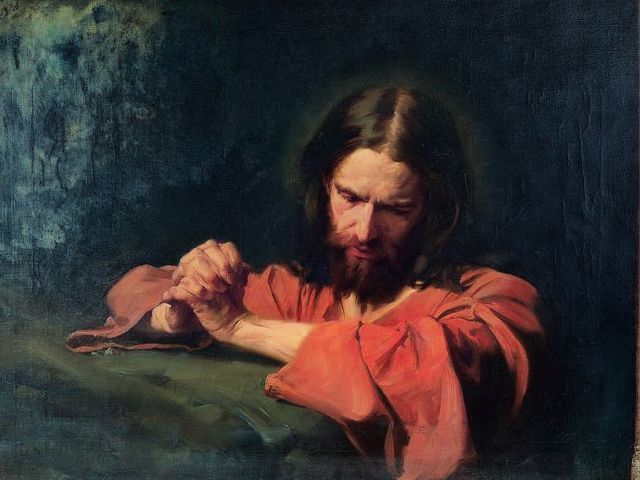
8. What is wrong with the following statement? “The Savior has already paid for our sins, but if we don’t repent, we’ll have to pay for them all over again ourselves.”
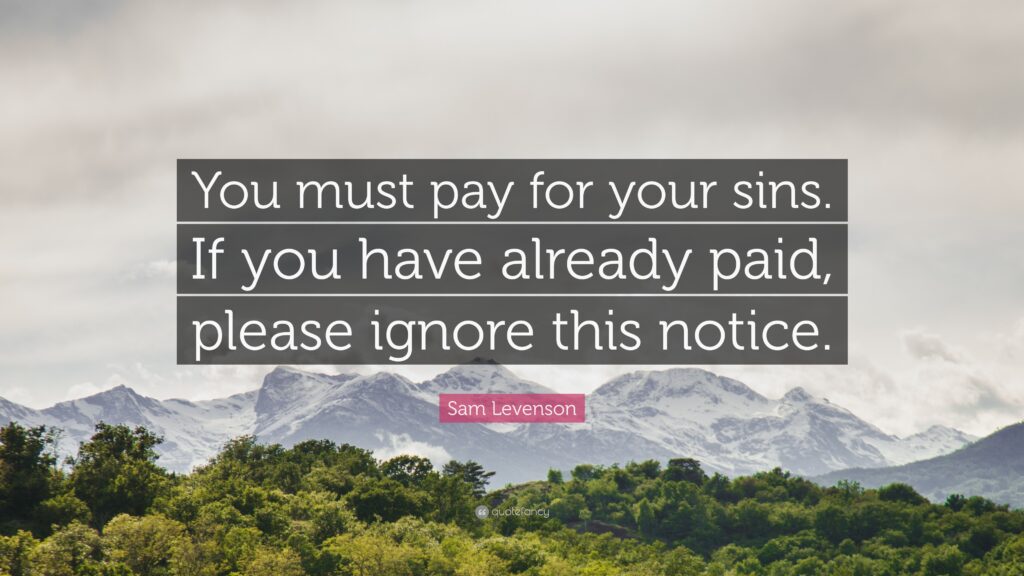
9. To what previous event does the Lord seem to be referring in the last part of 19:20?
10. What does it mean to covet one’s own property (19:26)? In what sense was Martin Harris seemingly guilty of this?
11. Why would 19:31 command “of tenets thou shalt not talk”? The dictionary defines a “tenet” as a “principle, belief, or doctrine generally held to be true.” Isn’t that exactly what we are supposed to be talking to people about?
12. What general application can you see for the principle referred to in 19:35?
13. What other passages in these sections did you find especially meaningful, and why?
Possible answers to Points to Ponder in Doctrine and Covenants 18-19
1. D&C 18:10-16 is usually thought of as being directed to missionaries. List at least two other applications you can think of for the same passage.
- Ministering elders and sisters will have great joy if their persistent efforts result in the reactivation of just one individual.
- Parents will experience similar joy if they succeed in leading one or more children back to the Lord.
2. How do you harmonize 3 Nephi 11:29, that says “he that hath the spirit of contention is not of me,” with the message of D&C 18:20 that we should contend against a certain church?
The message of 3 Ne. 11 is not to contend with each other. We should oppose evil, i.e., the “church of the devil,” wherever we find it, though even then we needn’t partake of an overly contentious spirit (D&C 50:32-33), lest we be caught up in the same evil we are trying to oppose.
3. What does the Lord mean in 18:35 that only by his power can we read the words of the D&C to each other? Can’t any literate person at least read the words, even if he doesn’t choose to follow them?
The “words” to which the Lord refers are more than appears on the printed page. They include all of the feeling and inspiration that came with those words when the Prophet recorded them, and only by having the same Spirit can we fully understand them or communicate them to each other today.
4. What reasons can you think of why the Lord may have designated Oliver Cowdery and David Whitmer to select the Twelve Apostles rather than have Joseph Smith do it himself as President of the Church?
Perhaps the Lord is honoring and even placating men who had already given much to the bringing forth of the Book of Mormon but who themselves (at least in Martin Harris’ and David Whitmer’s case) were not themselves destined to become general authorities. (Though Oliver was not one of the Twelve, he came to hold an even higher position–assistant president of the Church–prior to his apostasy.) Perhaps by sharing these spiritual responsibilities the Lord is also helping the Three Witnesses grow spiritually, at the same time freeing Joseph Smith from some of the administrative responsibility which would otherwise have been his alone.
5. Do the Lord’s explanations in D&C 19 make “eternal damnation” a more or less fearful prospect? Is He saying in D&C 19 that he has allowed his children through the centuries to misunderstand the meaning of “eternal damnation” and “endless torment” because they were better off misunderstanding? Explain.
It probably would make it seem less fearful to many. Many, if they understood that eternal damnation and eternal torment are only temporary, might be inclined not to try hard enough to avoid them and would experience untold misery as a result. This is evidently is why the Lord has preferred that many misunderstand the meaning of those terms. Though we learn here that hell for most is only temporary, the intensity of that hell, while one is experiencing it, is shown by this section to be as spiritually painful as anyone has ever imagined.
6. Is God more like a coach or a referee? What difference does it make?
I view him as a kindly coach, trying to help us do our best and avoid the dangers and pitfalls that are out there, rather than a strict referee who is waiting to assess us with a foul. It gives me a feeling that God is my friend rather than primarily my judge and motivates me to want to serve him and love him all the more. For additional thoughts on the subject, see my article “Is God a Referee or a Coach?” at https://latterdaysaintandhappy.com/god-referee-coach/.

7. Why do Latter-day Saints believe that the Savior’s suffering on our behalf was at least as intense in Gethsemane as on Calvary?
Because of D&C 19:18, which ties the Savior’s suffering to the time he bled at every pore, which we learn from Luke 22:44 was in Gethsemane. The pain was not a fear of impending crucifixion but the result of his being allowed, in some unfathomable way, to suffer pain equivalent to that experienced by, caused by, and deserved by all men from the beginning to the end of time. Contrary to what some commentators have supposed, however, this suffering, occasioned by a total withdrawal of the Father’s Spirit, seems not to have been confined to Gethsemane but to have continued on through the crucifixion, leading the Savior at one point to cry out, “My God, my God, why hast thou forsaken me?”
8. What is wrong with the following statement? “The Savior has already paid for our sins, but if we don’t repent, we’ll have to pay for them all over again ourselves.”
That statement seems to imply that sinners could and will have to pay the same price through suffering that Jesus paid on their behalf. But such would be impossible for them to do. It is clear from 19:17 that those who do not repent must indeed suffer—even as the Savior did. But that suffering is not “payment” in the sense of satisfying a debt, as Jesus’ suffering was. Unlike Him, we have no “money in the bank.” Nor could we suffer to the full extent He did without dying first. Sinners must suffer the natural consequences of their transgressions, but even for them it will be Jesus’ payment in Gethsemane and on the cross which purchases immortality for them and eventual inheritance in whatever glory they may qualify for.
9. To what previous event does the Lord seem to be referring in the last part of 19:20?
To the great misery Martin Harris felt after the loss of the 116 manuscript pages of the Book of Mormon. Lucy Mack Smith, the Prophet’s mother, commented on the pain they and Martin experienced at the time Martin confessed to having broken his oath and lost the manuscript: “I well remember that day of darkness, both within and without. To us, at least, the heavens seemed clothed with blackness, and the earth shrouded with gloom. I have often said within myself, that if a continual punishment, as severe as that which we experienced on that occasion, were to be inflicted upon the most wicked characters who ever stood upon the footstool of the Almighty—if even their punishment were no greater than that, I should feel to pity their condition.”5
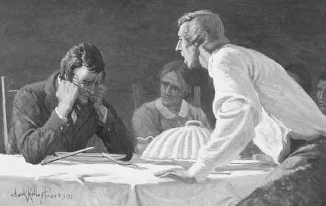
10. What does it mean to covet one’s own property (19:26)? In what sense was Martin Harris seemingly guilty of this?
To covet one’s own property would be to be unwilling to part with it for the good of others or the work of the Lord. Martin was tempted to withhold his financial means rather than use them to pay for the printing of the Book of Mormon. Happily, he was ultimately willing to sell part of his farm to raise the $3000 needed to pay for the printing of the first edition.
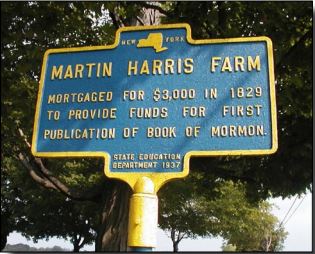
11. Why would 19:31 command “of tenets thou shalt not talk”? The dictionary defines a “tenet” as a “principle, belief, or doctrine generally held to be true.” Isn’t that exactly what we are supposed to be talking to people about?
This fits in with the Lord’s command in 19:21 to “preach naught but repentance,” since, as He adds in 19:22, “they cannot bear meat now, but milk they must receive.” It has special application to what the Lord just revealed about the real meaning of “eternal punishment” and “endless punishment.” Even today we would do well, when introducing the gospel to those not yet familiar with it, to talk about the basics and not get off into deep and speculative areas for which our new friends are not prepared. An analogy could be not trying to introduce calculus and statistics to a first grader, who could quite possibly be deterred from ever wanting to study math again, although he might have had the native ability and initial interest to have become a great scientist or mathematician if he had been introduced to the subject in the proper order.
12. What general application can you see for the principle referred to in 19:35?
Just as unpaid debt would be a sort of bondage to Martin Harris, so can excessive debt make us slaves today. President Joseph F. Smith, for example, taught: “Credit often involves persons in bankruptcy, and is most frequently at the root of all financial failure. It involves men in bondage which often works destruction to their characters as well as to their whole course in life. Only the free are free, and no person in debt is free. Of all people on earth, the Saints should be the freest; and in order to fulfill the desires of their hearts as Latter-day Saints, they above all people should be free from debt.”

13. What other passages in these sections did you find especially meaningful, and why?
Your choice. My list would include:
- 18:18: The Holy Ghost comes through faithful prayer and will manifest all things which are expedient for us to know.
- 18:21: Speak the truth in soberness
- 19:23: Walk in the meekness of my Spirit, and you shall have peace in me.
- 19:29: Martin Harris was told to declare glad tidings among every people he should be permitted to see.
- 19:30: Revile not against revilers. A good reminder for some politicians.
- 19:38: Constant prayer leads to having the Spirit, a greater treasure than the world can offer.
